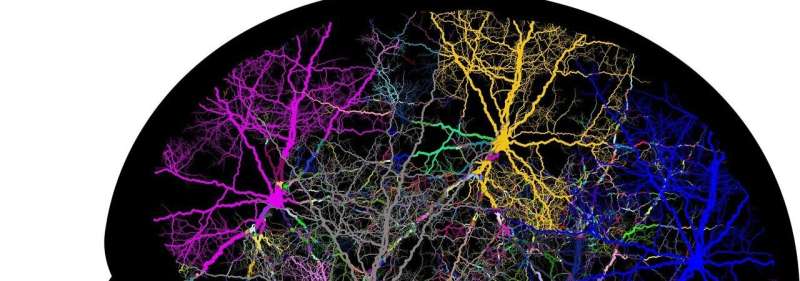Researchers investigate the role of dopamine in neurons involved in several psychiatric disorders

New research shows that the pharmacological treatment of neurons receiving dopamine has important effects on the differentiation of these cells. The study, in which Simona Coviello and Yaiza Gramuntell, who are part of the UV Neurosciences Program and the BIOTECMED Institute, and Esther Castillo-Gómez (UJI and CIBERSAM Research Center) have participated, may have important implications because these neurons could be linked to psychiatric disorders and their treatment. Nácher points out that further studies, using markers from adult neurons and transgenic animals, will be necessary to fully demonstrate this hypothesis.
"The presence of immature neurons in the cerebral cortex of adult animals is a very interesting phenomenon that may represent a new form of neuronal plasticity. We know that these neurons, at least in mice, are progressively incorporated into neural networks, and that they are also present in mammals with more complex brains, including humans," the expert said.
"We also know that these immature neurons are affected in animal models of depression and by the administration of antidepressants. Its regulation by dopamine, a molecule also involved in the disease and its treatment, could be an indication of its role in the pathology," said Juan Nácher.
In recent years, many studies have made it possible to characterize a population of immature neurons, that is, that have not yet become functional neurons, located in layer II of the piriformis cortex (PCX) of adult rodents. The function of these cells is still unknown, but they could be involved in the response to adverse experiences and in depressive behavior.
Previous studies have revealed the importance of dopamine during neuronal development, and also that these neurons in layer II of the PCX receive signals from dopamine-releasing neurons through the dopamine D2 receptor. However, how this receptor is produced in immature layer II neurons and the relationship of these cells with dopamine had not yet been investigated.
The team led by Juan Nácher, also a member of the Institute of Biotechnology and Biomedicine (BIOTECMED) of the University of Valencia, of the Research Group in Psychiatry and Neurodegenerative Diseases of the INCLIVA Health Research Institute and head of the G23 group of the Networked Center of Biomedical Research on Mental Health (CIBERSAM) of the Carlos III Health Institute, has investigated the influence of the pharmacological modulation of dopaminergic neurotransmission in the population of immature cells of layer II of PCX. In the research, immunohistochemical techniques have been used to specifically mark the cells of interest, as well as confocal and conventional microscopy, to be able to visualize them.
More information: Simona Coviello et al. Effects of Dopamine on the Immature Neurons of the Adult Rat Piriform Cortex, Frontiers in Neuroscience (2020). DOI: 10.3389/fnins.2020.574234



















